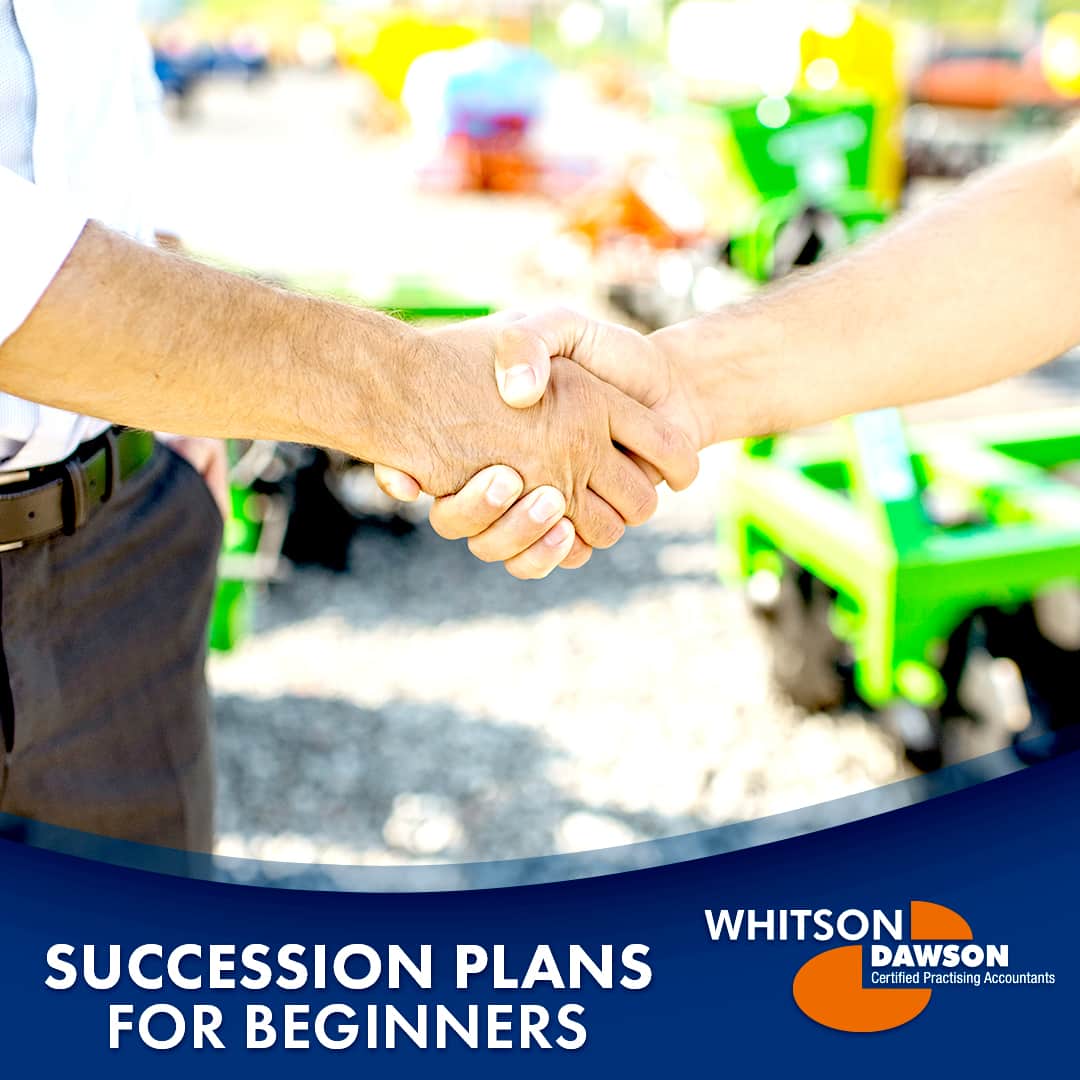A Beginner’s Guide to creating a succession plan
Every successful business owner will know that forward-thinking is essential to achieving positive outcomes, both personally and professionally.
Regardless of how happy you are in your role, the reality is you have to retire at some point. When you do, what will happen to your business? Who will take over the reins? Are your kids even interested in stepping into your shoes?…
These are important questions to consider before hanging up your boots – which is why having a solid succession plan in place is so critical.
Whether you have significant assets or simply savings and a super balance to consider, it is a good idea to consult your accountant for expert advice so that you don’t miss any important steps when forming your succession plan.
Your successor
Do you have children who are interested in taking over the business when you retire or would a suitable employee be a better fit?
Before it is too late, it is time to evaluate your workforce and identify the employees who have the necessary skills to step into higher roles and thrive.
- Identify your best succession candidates internally.
- Determine whether you need to look outside of the business for a suitable candidate.
- Determine if there is any training that candidates may need to prepare them for a new role.
Once you have taken the above steps, you then need to communicate with your staff to ensure they are on the same page. Perhaps your best suited candidate is not interested in a promotion due to other commitments – so it is better to know this before putting firm succession plans in place.
If you are considering choosing a family successor, you may want to first evaluate whether your child has the necessary skills and is ready to take on such a commitment.
A transition or trial period where you and your successor work side by side across different departments is a great option, rather than handing over power in a single moment.
Your business value
The valuation of your business may change considerably over the years, however your accountant should be able to give you an accurate idea of how much your business is worth. This is important as the transfer of assets can often attract unwanted attention from the ATO.
Raise the following topics with your accountant:
- Debt
Does your business have an existing debt? You may need to determine how to clear this debt before the sale versus during the negotiable sale process.
- Earnings
Does your business make enough profit to support a number of owners? You may need to consider your cash flow and determine how many business owners the company can afford.
- Transfer Costs
You may come across things like stamp duty and capital gains tax when transferring assets. Your accountant should be able to help structure transfers to minimise these costs.
- Assets
If you have chosen a family successor, it is important to consider all your children when handing down estates or other assets, especially if you are not selling the business at market value. This can be a delicate situation as fair outcomes should be obtained within the family to avoid disputes.
Integrating your plan
Don’t wait until you are ready to retire before trialling your succession plan. Think about what you can do, starting now, to prepare your workforce and your successor for the transition.
You may want to integrate your succession plan into your hiring strategy to fill any skill-gaps that may be left if critical employees leave the organisation. Stepping up your professional development efforts would also be a worthwhile investment to ensure your succession candidates have leadership abilities and a strong knowledge of the business.
Now is also a good time to look over your business strategy and policies and identify any areas that could be improved. If you have made the proper preparations, when the time comes to leave there should be a smooth transition to the new owners with minimal disruption to business operations.
Final matters to consider
- Will you transfer both ownership and management to your successor?
- Are the long-term objectives of your business in line with your succession plan?
- Do you want to act as an advisor once you have transferred ownership?
- Will your management team be made up of family members and non-family members?
- Will any family members have non-active ownership?
- Have you thought about a communication plan to ensure family or key staff understand your goals for the business?
- Have you considered both financial and legal advice in case of family disputes?
- How much income do you require to retire from the business?
While implementing your succession plan may seem overwhelming, with the help from a qualified accounting team such as Whitson Dawson, you can overcome any hurdles that may arise.
Setting out a realistic timeline is the first step, followed by the assessment of financial and legal requirements before the staged transfer of responsibilities.
With the right plan in place and support from your accountant, the final handover should be a seamless and relatively stress-free process.
For more information about succession planning or to book a consultation, give the
Whitson Dawson accounting team a call on
(07) 4957 2985 or email
business@whitsondawson.com.au
Remember, managing your finances doesn’t have to be stressful!
Until next time,
Whitson Dawson – your local accounting experts








Recent Comments